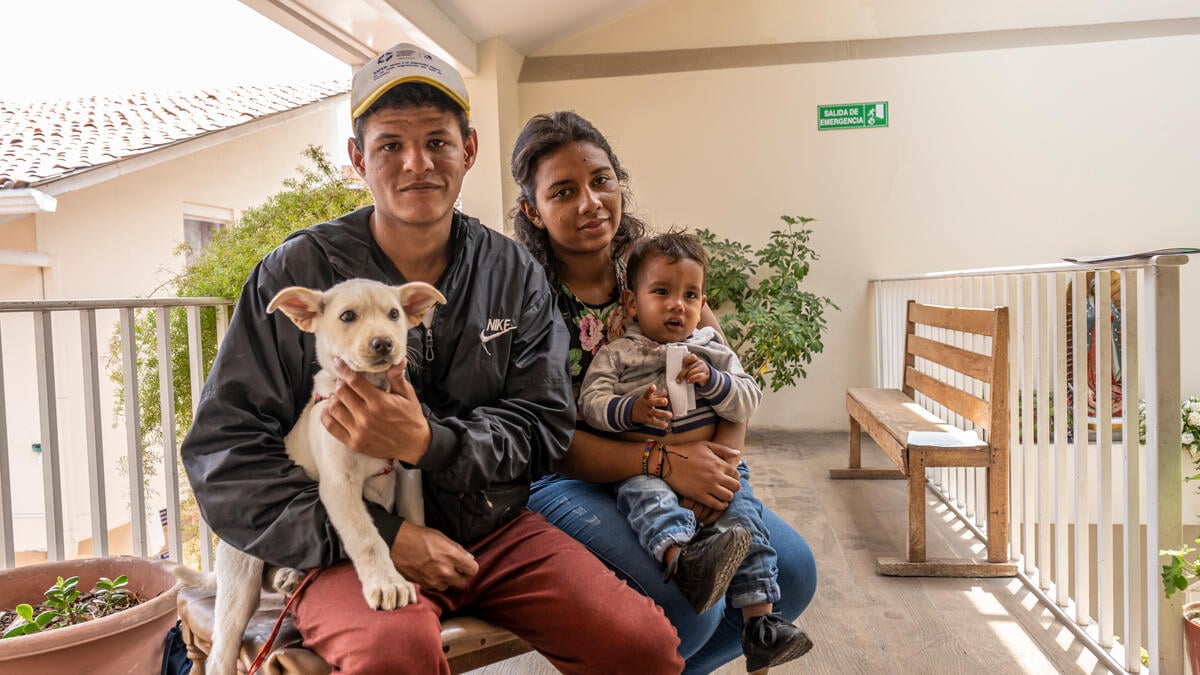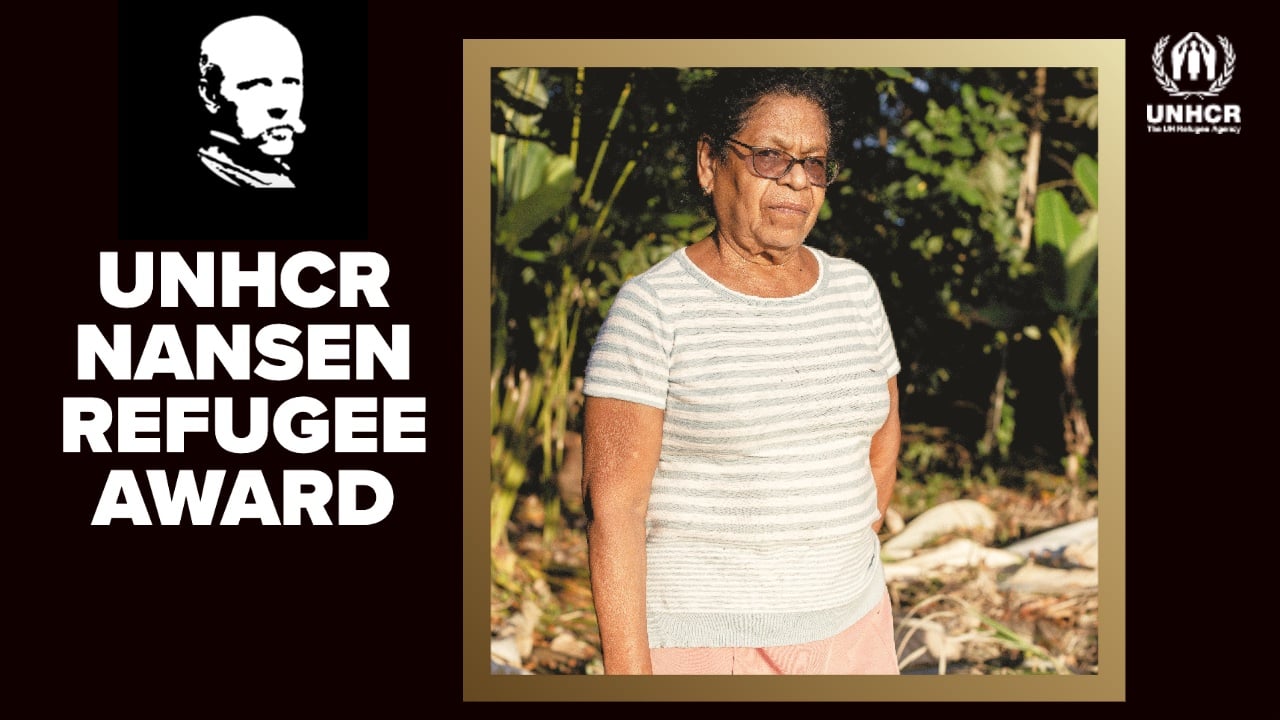Verification helps refugees eye the future
In the baking heat of a tent in Oruchinga refugee settlement, Uganda, seven-year-old Gloria Mutamba giggles as her mother holds a pair of goggles up to her eyes.
It takes a second for the computer to scan her irises, and all of Gloria’s self-control not to lean over for a peek.
Gloria’s 32-year-old mother, Jenipher, is among the first to be screened as part of a nationwide project by the Uganda government to collect fingerprints and scan the irises of more than 1 million refugees.
For the children, the biometric verification exercise is a curiosity. For Jenipher, it is the key to a future.
“The problem refugees face is that they have nowhere to call home,” she says, sitting at one of the processing desks. “This is why we support the verification. UNHCR should make it a global system so that if a refugee comes to Uganda they know this is their home and they can settle.”
"This is why we support the verification."
The computer records data such as Jenipher’s fingerprints and refugee status but takes no account of the strength that saw her through years of war in the Democratic Republic of the Congo (DRC) and the spirit that drives her to help thousands of women every day.
Held captive and repeatedly raped in a forest for two weeks before she escaped, Jenipher fled the DRC in 2011 and crossed into Uganda. Here, like all refugees, she was given a plot of land. A small hut took shape and Jenipher planted crops – spring onions, potatoes and spinach.
“I had prayed to God,” she recalls, “and said if you help me I’ll make it my life’s mission to help others.” Finally safe in Uganda with a place to call home, she was determined to keep her word.
It took the single mother less than a year, with support from the UNHCR, the UN Refugee Agency, and a local non-government organization, Hijra, to create a community savings group that is transforming refugee women’s lives.
“Each woman brings whatever they can and puts it into the kitty,” she says. “We use the money to help women in need, or if they need a loan. What we do is we fund their business and they pay us back from the profit they make.”
Every Friday, she and a group known as the "Angels” meet to pool money and discuss business opportunities. Their savings box has three padlocks. Three women, who live some distance from one another, each has a key.
When Jenipher arrived at the settlement, many in the group had been forced into sex or raped while searching for firewood across the border in Tanzania. Now, with their own businesses, they have a source of income.
“Refugees don’t just need food, they need to be empowered, like my women who are now running their own businesses,” says Jenipher, who runs a business buying and selling charcoal briquettes for fuel. “They can be given training and new skills, so they can rebuild their lives.”
“We use the money to help women in need."
The group plans to use some of the money in the kitty to open a hair salon and employ local youths.
“We have bought plastic chairs and a solar panel for the salon. We’ll even pay someone to train the youths. Many of them have finished school and I don’t want the same thing that happened to us in Tanzania to happen to them.”
Besides the income from her charcoal business, Jenipher is also earning 15,000 Ugandan shillings (about four US dollars) per day by helping to manage the crowd at the verification exercise. This money will not only help her. By pooling a percentage, she helps other women and children in the refugee community.
“The women are entrepreneurs now. They no longer sell their bodies. They were only doing it because they were poor. We help women to get jobs so they can be busy – without work, people lose their dignity.”
With support from UNHCR and the World Food Programme, the Ugandan government is collecting biometric data from more than 1 million refugees. The goal is to ensure that all refugees are properly registered and receive the protection and assistance they need. UNHCR’s biometric registration software has already been used to register some 4.4 million in 48 countries worldwide.
“The women are entrepreneurs now."
“Uganda treats refugees humanely because they are people,” says Douglas Asiimwe, the head of refugee protection in the prime minister’s office. “They are brothers and sisters. They are neighbours. Our approach has been to treat refugees with dignity and to do that you must give them rights.”
“This verification exercise will benefit you and your families,” UNHCR Representative Bornwell Kantande told refugees. “We want to have better services for all refugees and host communities, and the basis of that is verification.”
After Jenipher’s own verification is complete, with those of her daughter and her late brother’s two children, she returns to work, pulling on a high-visibility vest and ushering refugees inside the tent.
After all, she has a promise to keep.
“I remember my parents, I remember my family. I can’t forget them but you have to accept it, you have to keep moving forward.
“After everything that happened, look at my life now. Look at my house, look at my business, see how far I’ve come. But there are lots of women who are going through the same thing I did. I really want to help them.”

















